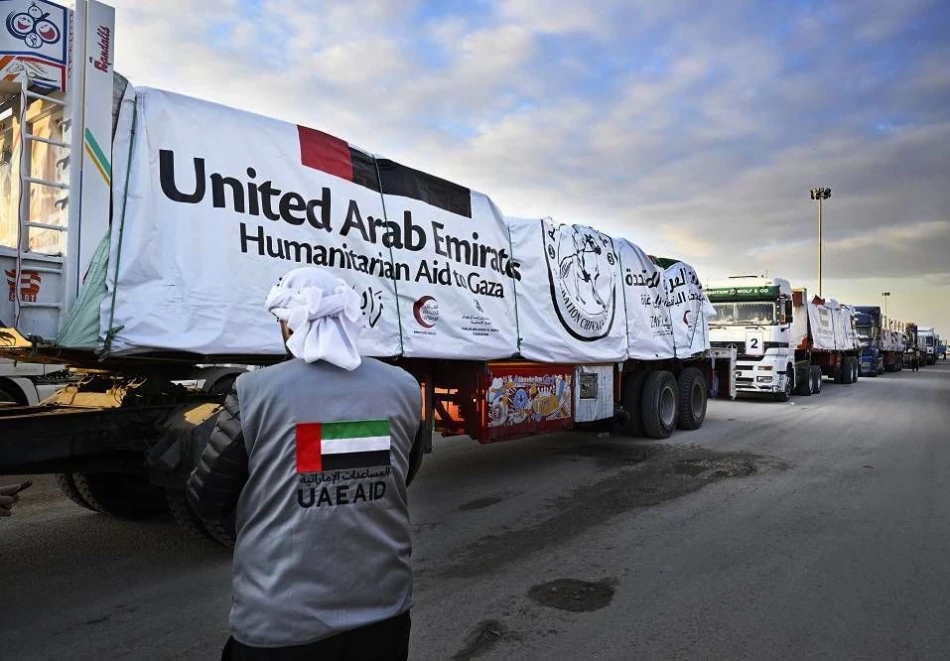
Humanitarian Aid Flows from UAE to Gaza: A Bridge of Compassion
UAE Emerges as Humanitarian Lifeline for Gaza Amid Ongoing Crisis
The United Arab Emirates has positioned itself as a critical humanitarian partner for Gaza, delivering essential aid through land, sea, and air corridors as the Palestinian territory faces severe shortages of food, medicine, and medical supplies. This sustained relief effort underscores the UAE's growing influence as a regional humanitarian power and highlights the complex geopolitical dynamics surrounding Gaza's isolation.
Multi-Channel Aid Strategy Shows Operational Sophistication
The UAE's deployment of relief convoys across multiple transportation modes—land routes, maritime shipments, and airdrops—demonstrates a level of logistical coordination that few nations can match in crisis zones. This approach ensures aid delivery continues even when individual channels face disruption, a critical factor given Gaza's restricted access points and ongoing security challenges.
The inclusion of medical supplies and pharmaceuticals alongside food aid reflects an understanding of Gaza's healthcare crisis, where hospitals operate under severe resource constraints and medical shortages can prove fatal for chronic disease patients and emergency cases.
UAE's Humanitarian Diplomacy Gains Regional Recognition
Gaza residents' public expressions of gratitude—specifically thanking UAE President Mohammed bin Zayed—signal the soft power dividends of sustained humanitarian engagement. This grassroots appreciation contrasts sharply with the often-complicated relationship between aid recipients and donor nations in conflict zones.
Building on a Proven Track Record
The UAE's Gaza initiative builds on its established humanitarian portfolio across the Middle East, from Yemen to Syria to Afghanistan. Unlike ad-hoc disaster response, this represents institutionalized humanitarian engagement that has become a cornerstone of Emirati foreign policy under the current leadership.
This approach mirrors successful humanitarian strategies employed by countries like Qatar and Turkey, where sustained aid delivery translates into diplomatic influence and regional standing.
Strategic Implications for Regional Stability
From a geopolitical perspective, the UAE's Gaza engagement serves multiple strategic objectives. It positions Abu Dhabi as a constructive regional actor while maintaining operational relationships with various stakeholders in the Israeli-Palestinian conflict.
For regional stability, consistent humanitarian aid can help prevent the complete collapse of Gaza's civilian infrastructure, which would create refugee flows and security challenges extending far beyond Palestinian territories.
Economic and Diplomatic Calculations
The UAE's ability to maintain humanitarian channels while pursuing normalized relations with Israel demonstrates sophisticated diplomatic balancing. This dual-track approach—humanitarian engagement with Palestinians alongside strategic partnerships with Israel—offers a potential template for other Gulf states navigating similar regional complexities.
For international observers, the UAE's sustained commitment suggests confidence in long-term regional engagement rather than short-term crisis response, indicating that Emirati leadership views humanitarian diplomacy as a permanent foreign policy tool rather than temporary goodwill gesture.
Most Viewed News

 Sara Khaled
Sara Khaled






